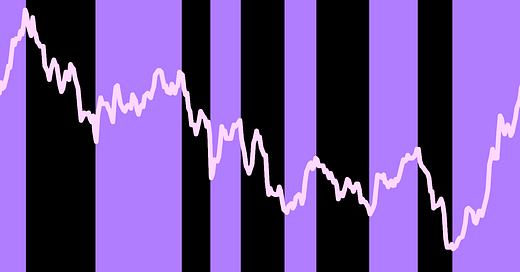Stocks remain resilient despite rising interest rates—here’s why.

January 28, 2025
Rising interest rates have historically been associated with stock market volatility, prompting fears of declining equity prices. Investors often worry that higher borrowing costs, reduced consumer spending, and tighter monetary policies will slow corporate growth and hurt stock valuations. However, history suggests that while rising rates pose challenges, they do not necessarily doom the stock market.
In fact, certain sectors benefit from higher interest rates, and stocks can still perform well under tighter financial conditions. The key for investors is to understand which industries thrive, how historical trends play out, and what strategies can help navigate this changing economic landscape.
1. The Federal Reserve’s Role in Interest RatesThe Federal Reserve (Fed) plays a central role in setting interest rates as part of its monetary policy to control inflation and economic growth. When inflation rises too quickly, the Fed increases interest rates to slow down borrowing and spending.
However, this does not mean that stock markets always decline when rates rise. The overall impact depends on economic conditions, corporate earnings, and investor sentiment.
2. Historical Market Performance During Rate HikesLooking at past rate-hike cycles, we see mixed results. Some market corrections have followed interest rate increases, but in many cases, stocks have continued to rise.
1980s-1990s: Despite multiple rate hikes, the stock market performed strongly due to robust economic growth. 2004-2006: The Fed raised rates times, yet the S&P still posted gains. ⚠️ 2015-2018: Gradual hikes initially led to strong stock performance, but late-cycle hikes contributed to a market downturn in 2018.
The takeaway? Stock market declines depend more on economic conditions than rate hikes alone. If growth remains strong, companies can absorb higher borrowing costs and continue expanding.
3. Which Sectors Are Most Affected?
Investing in Future Trends for Long-Term Growth
Thematic investing focuses on future trends shaping industries. Learn how to capitalize on tomorrow’s opportunities today

Markets React Positively as Election-Driven Optimism Grows
Stock markets are experiencing a strong post-election rally, driven by investor optimism, policy expectations, and economic growth prospects. Will the momentum continue

Annuities Provide Financial Stability and Retirement Security
Annuities offer retirees a reliable stream of lifetime income, protecting them from market volatility and ensuring long-term financial security

The bank repositions its operations, scaling back in Europe, UK, and the Americas.
HSBC is undertaking its largest investment banking retrenchment in decades, planning to exit its M&A and ECM operations in key Western markets. This restructuring focuses on shifting resources to Asia and the Middle East while consolidating debt capital markets and finance-led activities

Stock Market Trends, Economic Updates, and Investment Insights
This week, U.S. markets faced volatility amid earnings reports, Federal Reserve signals, and economic data releases. Investors analyze inflation trends and interest rate forecasts while navigating sector-specific shifts in technology, energy, and financial markets.

Value stocks remain underappreciated as investors focus on growth
Despite historical outperformance over the long term, value stocks remain underweight in many portfolios. With markets favoring growth and technology stocks, are investors overlooking key opportunities in undervalued assets

Stocks remain resilient despite rising interest rates—here’s why.
Higher interest rates often trigger fears of a market downturn, but historical data suggests otherwise. While some sectors face challenges, others thrive in a high-rate environment. Investors should focus on strategic allocation rather than panic selling

Market predictions and trends shaping the equity landscape in Q1 2025
The Q1 2025 equity market outlook explores key factors shaping investor sentiment and market direction, including global economic trends, corporate earnings, and sector rotations. Understanding these factors will be crucial for positioning portfolios in the coming months

Cyclical stocks and economic growth trends lead the market rally.
Economic resilience continues to support a robust cyclical rally, as key sectors benefit from sustained recovery. This outlook emphasizes growth in consumer demand, infrastructure, and industrials, driving cyclical stock performance
The Atlantic Daily
Get our guide to the day’s biggest news and ideas, delivered to your inbox every weekday and Sunday mornings. See more newsletters
.webp)
Ideas That Matter
Subscribe and support more than 160 years of independent journalism.
Subscribe